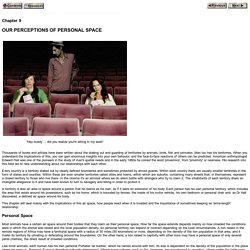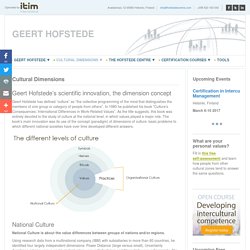

Nutzen Sie ‚Kulturdimensionen‘ zur erfolgreichen Internationalisierung und Lokalisation - Usabilityblog.de. Der Erfolg internationaler Websites hängt maßgeblich davon ab, wie gut das Interface auf die länderspezifischen Anforderungen und Erwartungen ausgerichtet ist.

Es gilt stets, die jeweiligen Märkte, Zielgruppen und lokalen Wettbewerber genauestens zu analysieren, um seine Website zu internationalisieren bzw. multiplizieren (Schritt 1) und dann erfolgreich lokalisieren (Schritt 2) zu können. Hierbei helfen Ihnen die sogenannten ‚Kulturdimensionen‘ nach Hofstede, Hall/Hall und Trompenaars. Was sind Kulturdimensionen? Kulturelle Denkmuster, die sich charakterisieren, schematisieren und voneinander abgrenzen lassen. Übungen - Interkulturelle Kommunikation/Landeskunde.
Interkulturalität. Typisch deutsch/ Klischees. Frankreich-webazine. Es gibt so ein paar Bemerkungen, die man während eines Frankreichbesuches lieber für sich behalten sollte.

Nicht, weil sie unhöflich wären, sondern weil man damit einen Franzosen ziemlich unglücklich machen würde. Schon seit Jahrhunderten sind die Engländer die Erzrivalen der Franzosen, und das wird beim Rugby besonders intensiv ausgelebt. Während des wichtigen Tournoi des 6 Nations ist vielen Franzosen nur eine Sache wichtig: Dass Les Bleus die Rotschöpfe namens „rosbifs“ verkloppen. 2.
Kartoffeln sind kein Gemüse Für uns sind sie ja eher – wie Reis oder Pasta – eine Beilage. 3. Die gleiche Rivalität, die zwischen Engländern und Franzosen in puncto Sport besteht, existiert zwischen Frankreich und Italien hinsichtlich des Essens (und der Frauen, aber das ist eine andere Sache). 4. Französischer Käse hat ein „intensives Parfum“, einen „ausgesprochenen Charakter“ oder ist höchstens etwas überreif, doch stinken (puer) tut er niemals!
Body Language - Our Perceptions Of Personal Space. Chapter 9 Thousands of books and articles have been written about the staking out and guarding of territories by animals, birds, fish and primates.

Man too has his territories. When you understand the implications of this, you can gain enormous insights into your own behavior, and the face-to-face reactions of others can be predicted. American anthropologist Edward Hall was one of the pioneers in the study of man's spatial needs and in the early 1960s he coined the word 'proxemics', from 'proximity' or nearness. His research into this field led to new understanding about our relationships with each other.
Every country is a territory staked out by clearly defined boundaries and sometimes protected by armed guards. The secret powers of time. Germany - Geert Hofstede. If we explore the German culture through the lens of the 6-D Model©, we can get a good overview of the deep drivers of German culture relative to other world cultures.

Power DistanceThis dimension deals with the fact that all individuals in societies are not equal – it expresses the attitude of the culture towards these inequalities amongst us. Power Distance is defined as the extent to which the less powerful members of institutions and organisations within a country expect and accept that power is distributed unequally. Highly decentralised and supported by a strong middle class, Germany is not surprisingly among the lower power distant countries (score 35). Co-determination rights are comparatively extensive and have to be taken into account by the management. A direct and participative communication and meeting style is common, control is disliked and leadership is challenged to show expertise and best accepted when it’s based on it.
Cultural Dimensions - Geert Hofstede. Geert Hofstede’s scientific innovation, the dimension concept Geert Hofstede has defined “culture” as “the collective programming of the mind that distinguishes the members of one group or category of people from others”.

In 1980 he published his book “Culture’s Consequences: International Differences in Work-Related Values”. As the title suggests, this book was entirely devoted to the study of culture at the national level, in which values played a major role. Cultural Insights. Hall's Cross-Cultural Theory Wiki. Edward T.

Hall's Cross-Cultural Theory The background of the theory: Edit Edward Twitchell Hall, Jr was an American anthropologist and cross-cultural researcher born in 1914. The foundation of his theories on cultural perceptions of space was set during World War II when he served in the U.S. During the 1950s as he worked for the United States Army as well as during his work as a director of the Foreign Service Institute, teaching inter-cultural communications skills to Foreign Service personnel. Throughout his career, Hall presented many new concepts, including proxemics, polychronic and monochronic time, and high and low context culture.
The main idea of the theory Edward Hall's theory tells about important cultural factors or dimensions. At first he tried to divide cultures by context and time, i.e. how contextual elements and time are treated in communication. Edward T. Hall. Leben und Wirken[Bearbeiten | Quelltext bearbeiten] Er unterrichtete an Instituten der University of Denver, Colorado, Bennington College in Vermont, Harvard Business School, Illinois Institute of Technology, Northwestern University in Illinois und anderen. 1942 Promotion an der Columbia University.

Im Zweiten Weltkrieg diente er im Pazifik und in Europa. Die Kriegserfahrungen in fremden Kulturen brachten ihn zu seinem Forschungsgegenstand und seiner zentralen These, dass Missverständnisse zwischen Kulturen auf eine Matrix von verschiedenen Parametern zurückzuführen seien, die für alle Kulturen gelten. Im Laufe der Jahre widmete er sich dieser Forschungsrichtung vor allem im Hinblick auf internationale Geschäftsbeziehungen. Hall sieht Kultur als „riesigen, komplexen Computer“.